Brace yourselves for an unbelievable tale of courage and survival as world-class freediver Cristian Castano takes us through the heart-stopping moment he faced an oceanic white tip shark during a training session in San Andres Island, Colombia. Cristian shares his harrowing story, recounting the adrenaline-fueled seconds when the oceanic white tip struck, and the battle for survival that followed. Witness the intense encounter that could have ended in tragedy but instead became a testament to human resilience.
Hey everyone, I'm Christian Castano, an athlete proudly representing Alchemy. I'd like to share a tale about my encounter with an oceanic white-tip shark in the waters of San Andres Island. The story begins with a training session as I geared up for the world championship in Roatan. Accompanied by five fellow freedivers, we embarked on a deep dive located 500 meters offshore. We swam to this spot, acknowledging that it wasn't the most ideal situation, given the considerable distance in case of emergencies. Unfortunately, due to the high cost of boats in the area, we decided to take the risk, and, as you can imagine, this decision led to unexpected events.
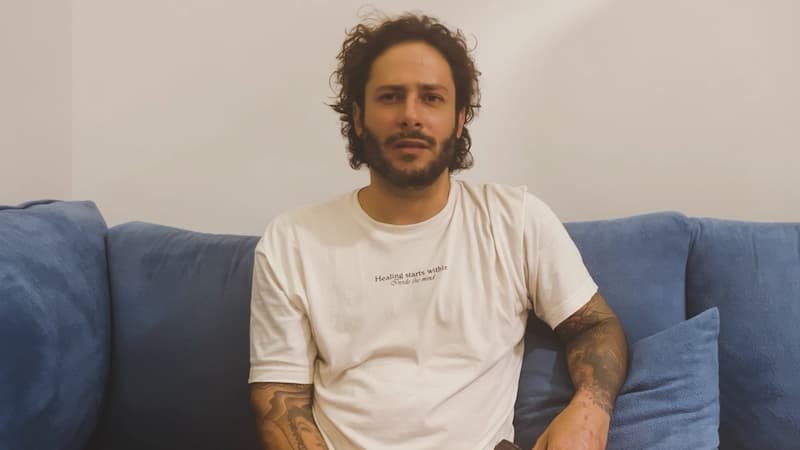
While preparing for my dive, Thais, my friend, warned me about a nearby shark. Without much concern, I calmly acknowledged her alert and chose to wait for the shark to move away. I took my time locating my mask and nose clip. When I finally donned my mask, I realized the shark was much closer than expected – just a meter away. Attempting to shoo it away with my monofin, it briefly retreated but returned with aggression, trying to bite the buoys. This prompted me to urgently advise my group to evacuate. We disconnected from the mooring buoy and started swimming away, pulling the rope behind us. The less experienced divers quickly distanced themselves, and the remaining four formed two pairs, each sharing a buoy. Despite the situation, I opted to stay behind, thinking I could distract the shark and safeguard the group. However, this decision proved to be a mistake, as the shark perceived me as prey, circling before launching an attack.
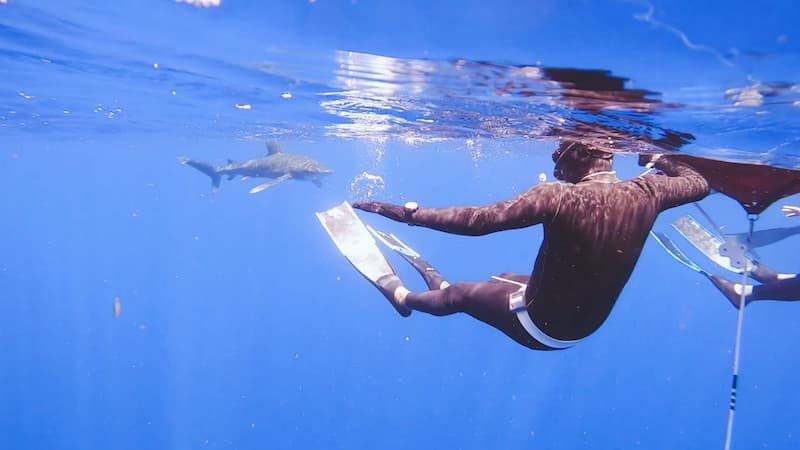
In the initial encounters, I successfully fended off the shark by kicking it with my fins, causing it to retreat. However, during one swift approach, the shark managed to surpass my fin and bite me. I couldn't pinpoint the exact location of the first bite due to the adrenaline, but I noticed blood and realized I needed to swim faster to get to safety. Despite the ongoing attacks—roughly 15 to 20 times—I continued to defend myself, targeting the gills, eyes, and sides, and using my hands and legs to punch and kick the shark away.
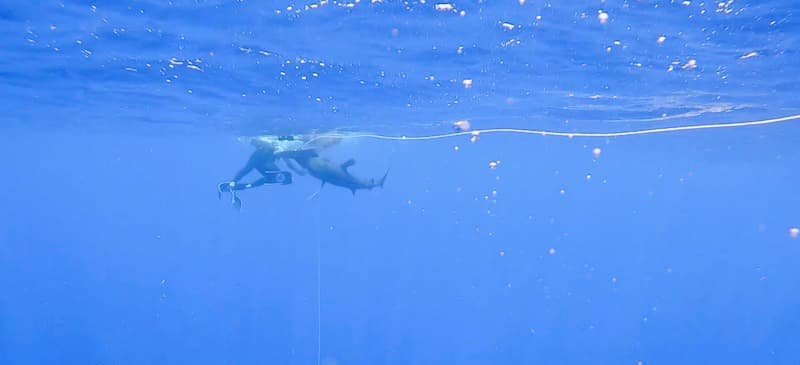
The intensity of the situation was overwhelming, resembling a cinematic scene with blood all around. At one point, I had to grip my injured hand tightly to minimize blood loss. Employing my freediving knowledge, I swam at full speed, periodically facing the shark, avoiding hyperventilation, and ensuring I didn't lose sight of it. The shark's aggression escalated with the sight of blood, making it crucial to maintain eye contact and swim backward to discourage further attacks.
Reflecting on the incident after exiting the water, I initially estimated the attack lasted around 15 minutes, but reviewing footage from my friend Sergio's GoPro revealed it lasted approximately 13 minutes and 40 seconds. The recording, initiated when the attack commenced, continued until we were rescued by a boat, providing an accurate timeline of the harrowing event.
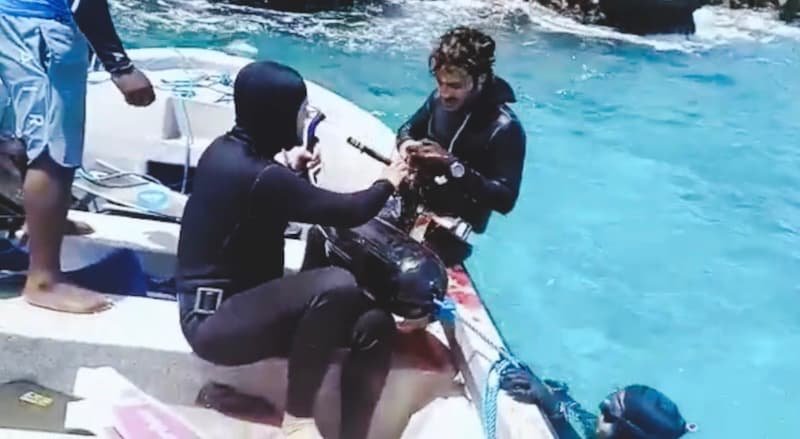
Amidst our escape, my friend Sergio, displaying remarkable courage, noticed the shark targeting me. While everyone else was swimming away, Sergio retrieved the GoPro stick and returned to confront the shark, attempting to ward it off by striking it. Despite his efforts, the shark remained indifferent and persisted in approaching me. Fortunately, the first two individuals who had left the area encountered a boat from a local island organization engaged in coral studies. They informed the crew about the shark attack, prompting the boat to head toward us.
As I lagged behind, the boat passed me initially. Desperate for help, I shouted to draw their attention, making them aware of the imminent danger with the shark just a meter away. The boat promptly circled back, and I hastily climbed aboard with the shark in close proximity, leaving the vessel splattered with blood. Subsequently, we picked up the other individuals, and the boat transported us to the shore.
Upon sitting on the boat, a wave of relief washed over me, knowing I was now on solid ground and the immediate danger had subsided. Despite losing a significant amount of blood, I found solace. Additionally, a friend who happened to be a doctor and part of the Colombian national team fashioned a tourniquet using a lanyard, tightly securing it around my wrist to stem the bleeding.
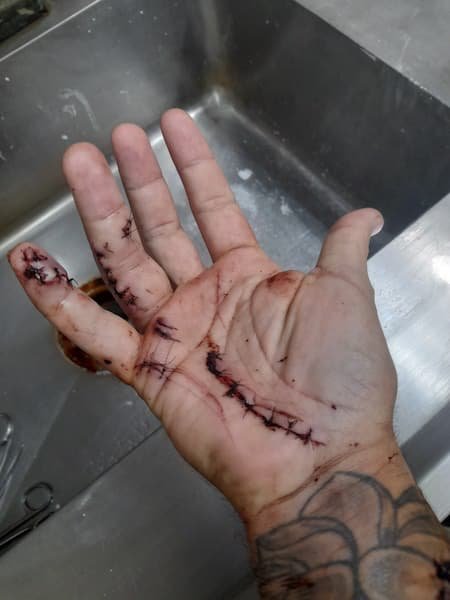
However, we hadn't fully grasped the severity of the wounds. Upon reaching land, I adjusted my wetsuit, revealing extensive open wounds with visible bones in both hands and my leg. Observing the extent of the injuries, I expressed my concerns to a friend, questioning how such wounds could be closed. In response, he insisted that our immediate priority was to rush me to the hospital while conscious. Hastily, we took a taxi, covering the distance in 20 minutes. Upon arrival, a team of about eight doctors swiftly attended to me, diligently stitching the wounds with evident concern. That marks the conclusion of the story. At the time, I genuinely feared for my life, but thankfully, I'm here, alive, able to recount the experience, and hopeful that my story can raise awareness and assist others.
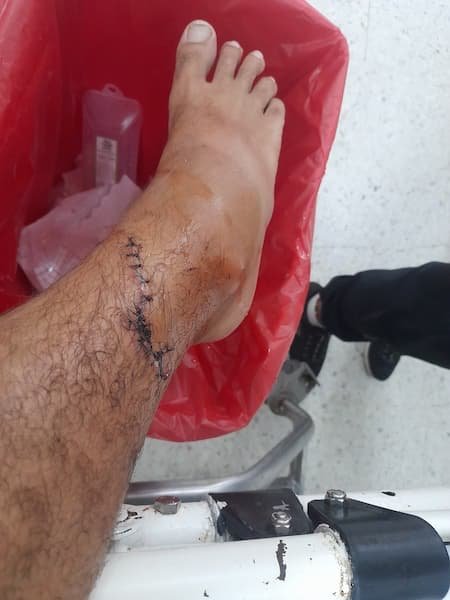
I believe it's unfair to blame the shark for the incident; it was merely acting within its natural environment. The real issue lies in certain human practices on the island and in various parts of the world, such as overfishing and the questionable methods used to attract sharks by feeding them. It's crucial to cease these practices and promote a healthier environment for sharks, reducing the likelihood of human encounters. After all, humans are not their natural prey. In this particular case, I think the shark was driven by hunger, and under normal circumstances, they typically feed on smaller prey like fish. That's the essence of the story. I hope you find it insightful. I'm doing well despite requiring 114 stitches. I didn't lose any fingers, and I'm actively participating in competitions. Recently, I took part in the World Championship in Cyprus, and I'm currently gearing up for competition in Sharm El Sheikh.